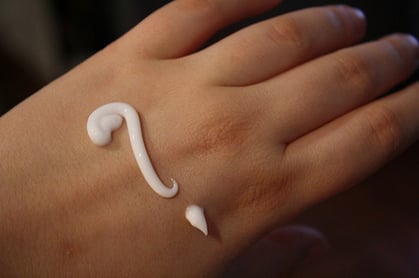Do you believe these 4 sunscreen myths?
Sunscreen should be a staple of your everyday skin care routine, but there are many misconceptions about its use that could be putting you at risk of sunburn, skin damage and skin cancer. Here are four common myths we've debunked to help you make better choices about your sunscreen use.
 MYTH: You don't need to wear sunscreen when using cosmetics with SPF.
MYTH: You don't need to wear sunscreen when using cosmetics with SPF.
FALSE. While some make-up and cosmetic products contain SPF (sun protection factor), they need to be labelled with an SPF30 or higher in order to be an effective form of sun protection.
Putting on an SPF-containing moisturiser or make-up product once in the morning is not enough to protect your skin all day, as most products offer either no protection or protection that is much lower than the recommended SPF30.
You should wear additional sunscreen under your make-up if you are going to be out in the sun, and you should reapply it every two hours if you're outdoors for that long.
MYTH: You don't need to wear sunscreen if you have olive skin.
FALSE. People with olive skin can get skin cancer too, and therefore need to take steps to protect themselves from the sun.
Exposure to UV radiation from the sun, solariums and other artificial sources can cause your skin to be permanently damaged, regardless of your skin type. Even though olive skin is less likely to burn than fairer skin, people with this skin type can still receive enough UV exposure to put them at risk of developing skin cancer.
It is important for everyone to apply sunscreen every day, no matter what skin type they have, and to stay vigilant for signs of skin cancer.
MYTH: If you tan but don't burn, you don't need to wear sunscreen.
FALSE. There is no such thing as a safe tan. Darkening of the skin cells - what we call tanning - is actually a sign that your skin cells are in trauma and attempting to protect themselves from further damage.
Tanning your skin has the same effect as burning it, even if there is no redness or peeling. The skin cells become irreversibly damaged, which leads to premature signs of skin ageing such as wrinkles, sagging and fine lines, and heightens your risk of developing skin cancer.
If you tan easily, you still need to wear sunscreen every day to protect your skin from this damage.
MYTH: Wearing a higher SPF sunscreen means you can stay out longer in the sun
FALSE. Sunscreen should never be used to extend the amount of time you spend in the sun.
SPF30 sunscreens filter out about 96.7 per cent of UV radiation, while SPF50 sunscreens filter 98 per cent. This is only a marginal difference and doesn't mean you can spend more time in the sun before reapplying sunscreen.
It is recommended that you wear a product that is SPF30 or higher before heading outside and reapply it every two hours, after swimming, sweating, or towel drying.
- Tags:
- Prevention
